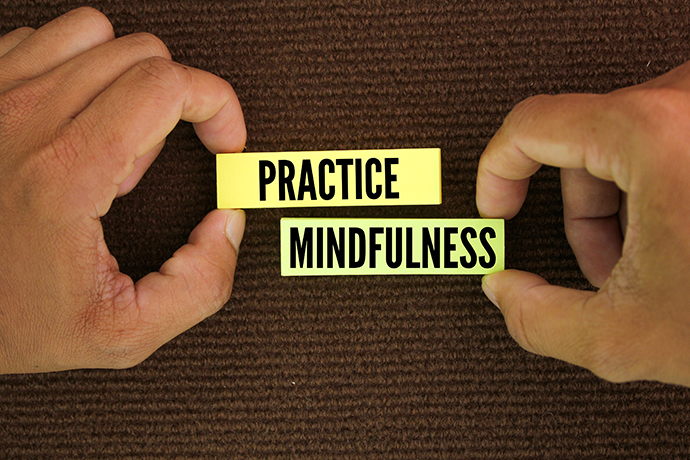 SPEAKERS
SPEAKERS
 TOPICS
TOPICS
Uncertainty is tough—but you’re tougher. Learn how to face change with clarity, build resilience, and regain control when life feels unclear.

Change is inevitable, and if it happens drastically, it may leave you in a state of uncertainty as you anticipate what comes next. Learn powerful tips for dealing with uncertainty, regaining control, and building resilience during times of change.
Nearly all of us have been in situations of constantly worrying about the future. Perhaps you just lost your job and don’t know what comes next. You recently closed your business or completed college, and as you figure out where to go next, you cannot stop wondering what the future holds. Will you succeed, or is all your effort going to amount to nothing? Such are some questions that will likely linger in your mind.
The period can be overwhelming. Anxiety, doubt, and fear often accompany the unknown, leaving many people feeling stuck. But with intentional strategies and a mindset shift, you can build resilience, reduce stress, and even uncover new strengths. Here are helpful tips on how to deal with uncertainty.
Acceptance is the first step to dealing with any overwhelming situation. Recognize that whatever you are going through is a part of growth, and how you handle the change determines if you will get to where you are supposed to be. Otherwise, failure to accept the situation only cultivates stress and may force you to make impulsive decisions that will lead you to deeper pits. Acceptance does not mean giving up; it means understanding that while you cannot control everything, you can control how you respond. Feeling uneasy is an understandable response during transitions. The more you normalize your emotions, the more space you create for growth and adaptation.

Wisdom is accepting what you cannot change, and knowing how to handle what you can. Dealing with the uncertainty of life is manageable when you concentrate your attention on things that are within your influence. For instance, you may update your CV and send as many job applications as you can. You may also utilize this period to learn new skills or attend open business conferences to network with other business owners. What may seem like slow progress will make a major difference when the time to transition to the next phase comes. Simple changes like adopting a morning and evening routine go a long way to building discipline.
You don’t have to face uncertainty alone. Social support is a powerful buffer against stress. Talk to friends, join support groups, or connect with mental health speakers or therapists. Vulnerability fosters trust, and sharing your journey with others can be healing. Building support networks not only ease isolation but also opens you to fresh perspectives and encouragement. If dealing with the uncertainty of life feels overwhelming, professional support can make a tremendous difference.

A significant part of anxiety in dealing with uncertainty stems from imagining worst-case scenarios. Strengthening emotional resilience equips you to handle such fears more effectively. Try the following:
Uncertainty disrupts our usual rhythms. Establishing structure restores a sense of control. Create a daily routine with time slots for work, meals, exercise, and relaxation. Structure isn’t just about productivity; it’s about emotional stability. Even simple routines, like consistent sleep schedules or preparing meals in advance, can act as psychological anchors. For those who feel they can’t deal with uncertainty, these routines offer comforting predictability in chaotic times.
One effective strategy for dealing with uncertainty is to practice mindfulness. When your mind spins with future worries or past regrets, it adds to your distress. Techniques like meditation, mindful breathing, or grounding exercises help bring you back to the now. Try spending a few moments each day in quiet reflection. Use a mindful breathing exercise: Inhale deeply, hold, and exhale slowly. This calms your nervous system and clears your mind. Being present is not about ignoring problems, but about facing them with clarity and composure.
Our internal dialogue shapes our emotional experience. When anxiety dealing with uncertainty strikes, you may fall into catastrophizing or helpless thinking. Practice cognitive restructuring to challenge and replace these thoughts. Ask yourself:
Adaptability is your greatest asset during change. Life rarely unfolds in a straight line, and rigid expectations only create disappointment. Embrace an agile mindset, where you are willing to shift strategies and try new approaches. If one plan doesn’t work, explore alternatives without losing sight of your core goals. Don’t feel like by being flexible you are lacking direction. See it as an ability to navigate challenges with grace. Dealing with change in uncertainty becomes easier when you accept that detours are sometimes necessary for progress.

Failures and setbacks are not signs of weakness. When something doesn’t go as planned, ask: What can I learn from this? What adjustments can I make? Preparing to fail doesn’t mean expecting defeat; it means having a growth mindset. Document lessons, celebrate small wins, and view missteps as stepping stones. How to deal with uncertainty is not about avoiding failure but bouncing back stronger each time.
Your body and mind are deeply connected. When you neglect physical health, your ability to cope with emotional stress declines. Prioritize self-care through:
Physical wellness enhances emotional resilience, giving you the strength to manage the highs and lows of change.
Ultimately, dealing with uncertainty is not about eliminating unknowns. The trick is to become more equipped to face them. Focus on what you can control, strengthen your resilience, and seek support when needed. Change isn’t inherently negative; it’s a gateway to growth. How to deal with uncertainty means embracing discomfort, being flexible, and trusting in your ability to adapt. Each challenge is a chance to discover inner strength you didn’t know you had. Even in the most chaotic seasons, you have the power to move forward with confidence. Accept the uncertainty, trust your journey, and know that transformation often begins at the edge of the unknown.